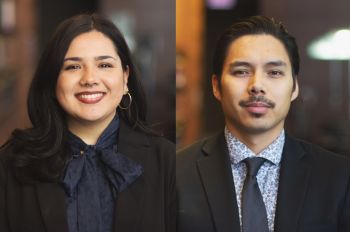Inspiring Change Newsletter: July 2017
Developing African American "Lived Experience" Research Leaders
July 2017
What is CBPR?
In community-based participatory research (CBPR), researchers partner with community members to identify, investigate and implement solutions to problems. CBPR teams work together to complete projects that are relevant to the local community.
What is Inspiring Change?
Inspiring Change is a method of CBPR designed to specifically to engage African Americans with serious mental illness in health research. African Americans with lived experience of mental health challenges have high rates of chronic physical illness, disability, and premature death. The purpose of the Inspiring Change network and curriculum is to increase the involvement of people with lived experience in research to reduce African American health disparities. Inspiring Change was created at the Illinois Institute of Technology by an advisory board of comprised largely of African Americans with lived experience, as part of Chicago Health Disparities Center (CHDC).
Upcoming Trainings
Lived Experience Leadership Workshop
In October 2017, CHDC will host a two-day workshop in Chicago for people with lived experience of mental illness to develop leadership skills. This free, interactive workshop will be open to those who want to enhance their leadership opportunities and learn about health disparity research. Workshop attendees will be prepared to work with a team and submit a research idea for funding (see below).
Inspiring Change CBPR Workshop
In November 2017, lived experience leaders (graduates of the Lived Experience Leadership Workshop) will form a research team and complete a one-day workshop at Illinois Tech to learn more about CBPR, refine their research idea, and develop a research proposal.
Upcoming Funding Opportunities
Our advisory board will select and provide funding to two CBPR projects designed by attendees of the Leadership and Inspiring Change CBPR Workshops (see above). Chosen research projects will address physical health disparities experienced by African Americans with serious mental illness. Up to $20,000 is available for each research project.
Want to Learn More?
Project leads, Lindsay Sheehan and Sonya Ballentine are offering short presentations to health care agencies about the potential of incorporating CBPR into current research/evaluations efforts or into consumer advisory board work. Contact Lindsay to arrange a presentation.
Lived Experience Profile
Meet Christopher Ervin!
Christopher is supervisor of community specialty services at Heartland Health Outreach (HHO), a healthcare organization serving low-income Chicagoans. Christopher came from lived experience background and was homeless when he first moved to the Chicago area. After availing the services of community providers, Christopher entered the job market for the first time in over 9 years. His part-time job as a peer health navigator on an NIH-funded grant provided that first employment opportunity. Christopher subsequently transitioned to full-time employment as a care coordinator, medical case manager, and finally as a supervisor, where he continues to be involved with CBPR projects for African Americans with serious mental illness.
We asked Christopher a few questions about his experiences with CBPR:
What benefits have you personally gained from CBPR?
Through CBPR projects I’ve learned a lot about the disparity within my own community. And I’ve learned needs of the community. Being involved in CBPR also gave me a sense of being able to give back to the community. I’ve learned from other individuals who took part in the CBPR projects—I’ve benefitted from their perspectives.
What do you see as the challenges of CBPR?
One of the challenges for people with serious mental illness who are starting on a CBPR team is consistency—that is, they have to be at meetings, whether it’s every week or every month consistently, where there was no structure for them previously. And they need to understand overall what they have to offer to the team, and how their role is important. For my own transition from no-time to part-time and then to full-time employment, I’m glad I had the tools to do that.
What helped prepare you for a leadership role?
What helped me take on leadership role was the fact that going into the projects, I had a great work team and great personal support. I had a support system from people who were already in leadership. For me, someone saw the potential that I had, helped me identify that potential myself, and helped me bring that forward. And I have people that check in with me and I can check in with them—that’s helped with consistency and being able to maintain a leadership role.
What other thoughts do you have about leadership?
Leadership starts with self. No matter how much another person pours into you, it will be hard for you if you don’t have that desire within self. But I strongly believe that everyone has the potential to be a leader.
This newsletter and project are funded through a Patient-Centered Outcomes Research Institute (PCORI) Eugene Washington PCORI Engagement Award (3974-IIT). The statement presented in this newsletter are solely the responsibility of the authors and do not necessarily represent the views of PCORI, its Board of Governors or Methodology Committee.




